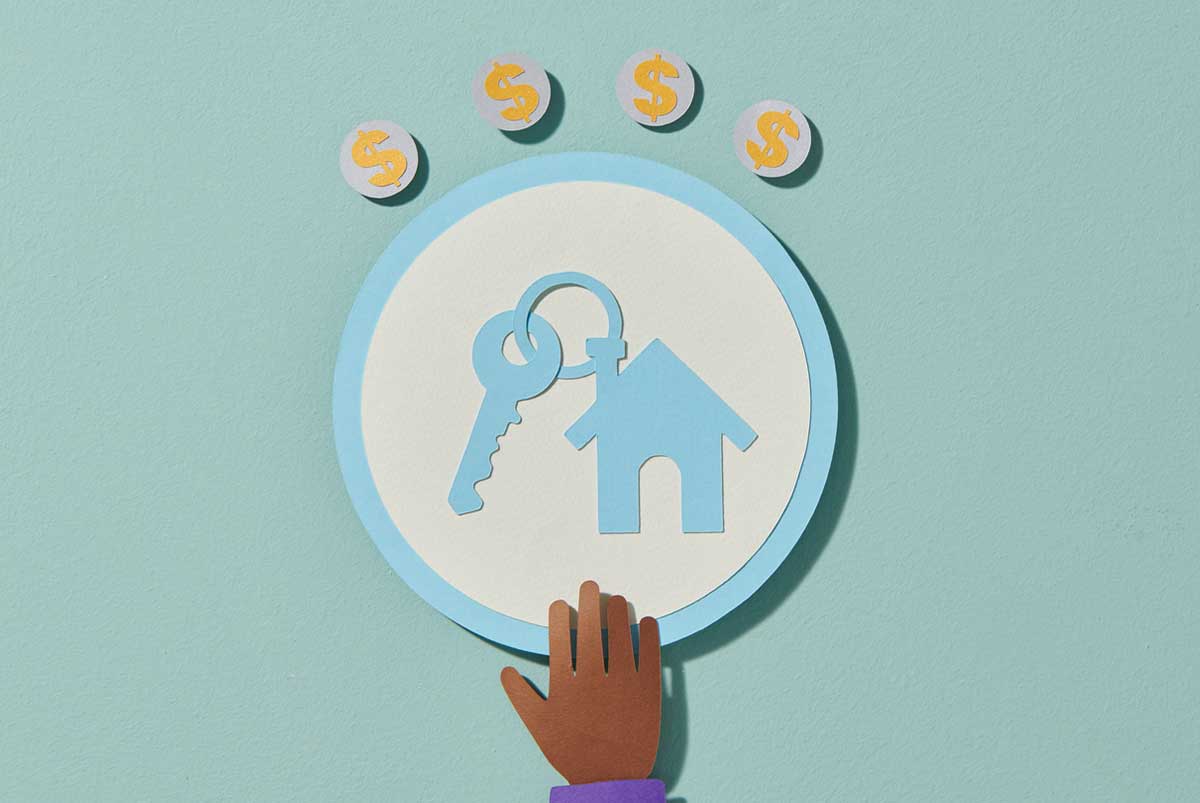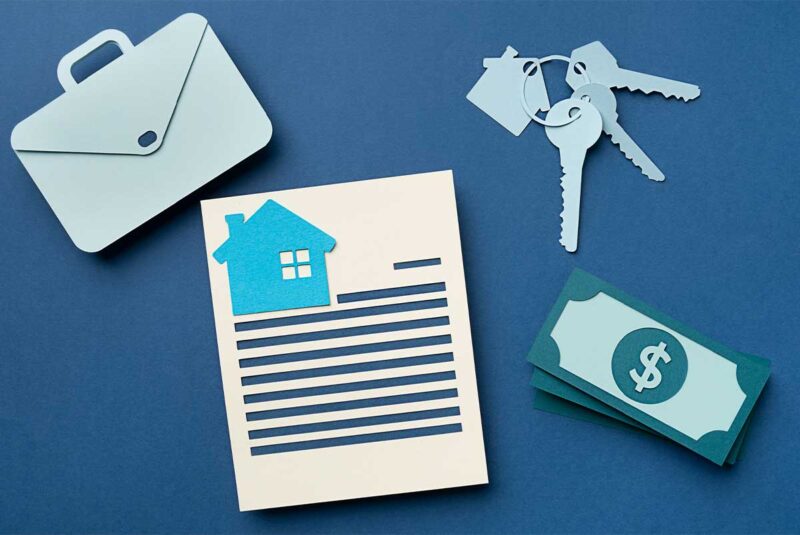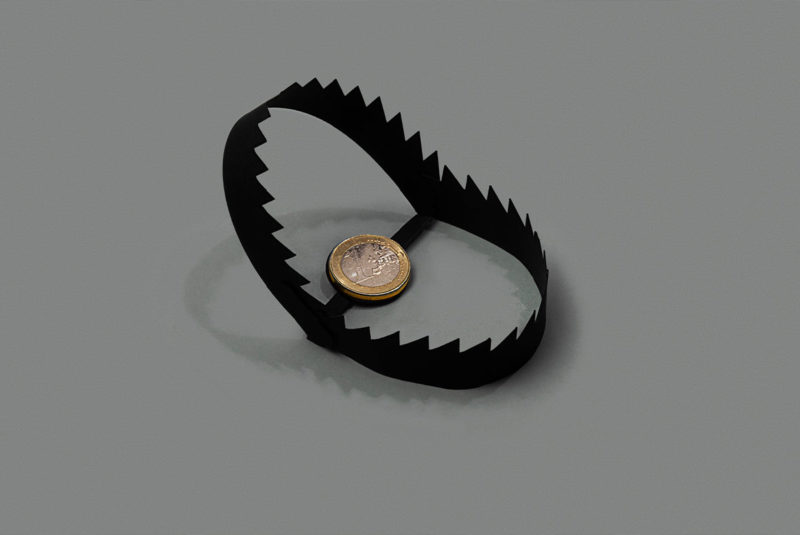Ready To Buy a Home?
Get Approved to Buy a Home
Rocket Mortgage® lets you get to house hunting sooner.
Purchasing a home can be an intense process, and one of the biggest hurdles comes at the end: closing on the home. From title searches to inspections and appraisals, a lot needs to happen before you get the keys.
But who pays for closing costs, the buyer or seller? The short answer is it’s negotiable, but the buyer and seller both usually pay some closing costs. We’ll get into the nuances of who typically pays for what and some tips for keeping your costs as low as possible.
How Much Are Closing Costs?
Explore Your Mortgage Options
What are you looking to do?
Closing costs for the buyer are usually 3% – 6% of the purchase price. So for a $300,000 home, that would be $9,000 – $18,000.
Usually, the seller is responsible for covering the real estate agents’ commissions. This normally comes to 5% – 6% of the purchase price.[1] There are also some miscellaneous costs the seller might pick up. Remember, like most aspects of buying a home, these costs aren’t fixed and can be negotiated.
Does the Buyer or Seller Pay Closing Costs?
Generally, both the buyer and seller pay closing costs. However, certain costs typically fall to one party or the other.
Typical buyer closing costs
Here are some closing costs that tend to be handled by the buyer.
- Lender fees: This includes the fees for generating the loan, pulling your credit report and the underwriting process.
- Appraisal fee: This is the cost to secure an estimate for what the property is worth.
- Title search: The property title search makes sure there are no other claims to the property.
- Home inspection: A home inspection identifies current and potential future issues with the home. After the inspection, the buyer has the option to ask the seller to make repairs.
- Discount Points: Prepaid interest that lowers your mortgage rate. One point equals 1% of your total mortgage and usually lowers your mortgage rate by 0.25%. For example, one point on a $200,000 mortgage costs $2,000.
Rising rates? No thanks.
Lock in your rate for 90 days with RateShield®. Make your moves on your time – no panic necessary.
RateShield® Approval is a Verified Approval with an interest rate lock for up to 90 days. If rates increase, your rate will stay the same for 90 days. If rates decrease, you will be able to lower your rate one time within 90 days.
Please contact your Home Loan Expert for additional information. This offer is only valid on 30-year FHA, VA and conventional purchase loan products. RateShield® Approval is not eligible for clients with a signed purchase agreement, on Charles Schwab loans or new construction loans. Additional conditions and exclusions may apply.
Typical seller closing costs
Here are some closing costs that tend to be covered by the seller.
- Real estate agent commission: Typically, the seller pays the commission for both the listing agent and the buyer’s agent. This usually comes to 5% – 6% of the sale price.[1]
- Title insurance: This is a one-time fee to insure the title.
- Recording fees and transfer taxes: This is the local government fee for updating the records when a property changes hands. Who you’ll pay, and how much, varies by state.
Negotiating Closing Costs
Depending on what type of market you’re in, the seller might be willing to contribute to closing costs. This can be viewed as a win-win for both parties when it helps secure a deal faster. Also known as seller concessions, this is a common practice when it comes to buying a home.
That said, there are some potential disadvantages for both parties to watch out for. Seller concessions can impact negotiations around the purchase price. Depending on how the math shakes out, the seller could lose profit or the buyer could have higher mortgage payments.
When considering asking the seller to contribute to closing costs, it’s a good idea to communicate with your lender, so you’ll know exactly how your payments will be affected.
Tips for Saving Money on Closing Costs
While certain closing costs don’t have a lot of room for negotiation, there are still some steps you can take to try to save money.
- Shop lenders: Lenders charge different fees at closing. Try to find a lender that offers lower fees and competitive interest rates for lower overall closing costs.
- Ask about lender credits: Lenders may be willing to pay some or all of your closing costs, but there’s a catch. They’ll charge higher interest rates. In other words, you’ll pay less upfront at closing, but you’ll pay more over time.
- Comparison shop for services: Services like home appraisals and home inspections are part of the closing process, but you can look for deals among different providers.
- Negotiate with the seller: You have the right to ask the seller to contribute to closing costs. Just be careful, as this can make your offer less appealing. And if you raise your offer price to offset this, you might end up paying more in mortgage payments.
FAQs about who pays for closing costs
It varies depending on the purchase price and what’s negotiated. The biggest single expense is usually the real estate agent commissions. This is traditionally paid for by the seller, but it’s not uncommon for the buyer to pay more overall.
Generally, closing costs for the buyer will be 3% – 6% of the property purchase price. This report from ClosingCorp includes averages by state.
It’s possible, but check with your lender. They have different policies regarding this practice, and some won’t let you.
Closing Is the Home Buying Finish Line
The good news is once you complete the closing process, you own the home. There shouldn’t be any more hurdles to clear – unless you want to immediately start diving into renovations.
The Short Version
- Who pays for closing costs, the buyer or seller? The short answer is it’s negotiable, but the buyer and seller both usually pay some closing costs
- Closing costs for the buyer are usually 3% – 6% of the purchase price. The biggest cost for the seller is the real estate commissions for both agents, normally 5% – 6%[1]
- You can try to lower your closing costs by shopping lenders, comparing prices for services and negotiating with the seller
National Association of REALTORS®. “Agent Income.” Retrieved March 2023 from https://www.nar.realtor/agent-income




